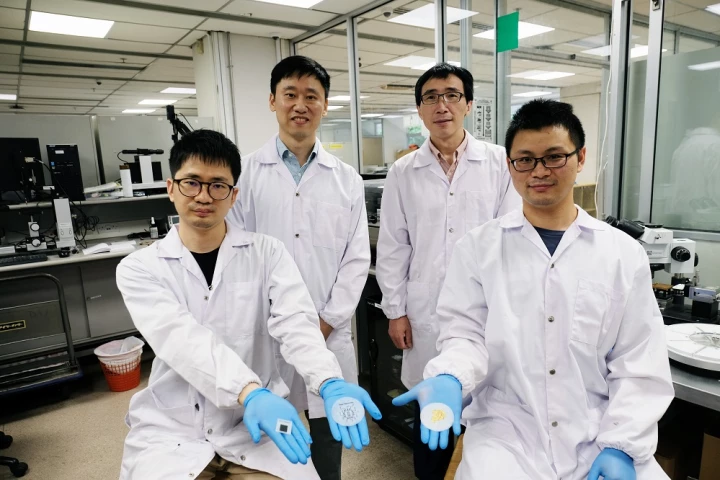Nanyang Technological University
-
Concrete is a popular building material, enough so that one of its key ingredients – sand – is in short supply. Scientists are thus now exploring the possibility of replacing that sand with glass waste that would otherwise end up in landfills.
-
While the recycling of paper is all very well and good, reusing it is even better. A new pollen-based paper was designed with this fact in mind, as text can be printed onto it and then chemically erased multiple times.
-
While live probiotic bacteria produce many health benefits when ingested, the microbes have to get past your stomach and into your intestinal tract in order to be effective. An experimental new algae-based coating could soon help them do so.
-
Palm oil is a very widely-used food ingredient, but its production has a huge environmental impact, plus it may not be entirely healthy to consume. A greener, "lower-fat" alternative could be on the way, however, in the form of oil produced by algae.
-
If you're 3D-printing metal parts for use in aircraft or other critical systems, then those parts had better not be defective. A new system allows such items to be checked for structural flaws, quicker and cheaper than ever before.
-
Nobody likes fogged-up glasses or goggles, and unfortunately most anti-fog solutions need to be frequently reapplied. A new treatment, however, could make polycarbonate lenses permanently fog-free … and self-cleaning, to boot.
-
Next-generation therapies that fight obesity could come in many forms, but one example from Nanyang Technological University that uses a unique combination of light and metabolic function to break down fat has some unique advantages.
-
Within certain populations, it's important to know if individuals may be developing depression. New research suggests that even if people don't realize they're becoming depressed, a simple Fitbit could warn that they are.
-
It's ironic that even though many people are starving, a great deal of food gets discarded because it spoils before it can be eaten. A new natural-source packaging material could help, by making foods last longer – plus it's biodegradable.
-
Food additives called emulsifiers are widely used to combine two liquids which ordinarily don't mix, like oil and water. And while most are made from dairy proteins or egg yolks, a new one uses spent brewer's grain which may otherwise be discarded.
-
Although there are now biodegradable single-use electronic devices such as environmental sensors, the batteries in those devices can still pose an ecological problem. That's why scientists have now created a fully biodegradable paper-based battery.
-
As sunlight passes through a building's windows it can cause indoor temperatures to rise, to the point that the structure's air conditioning system has to be used. A new window material, however, blocks incoming heat while staying mostly transparent.
Load More











